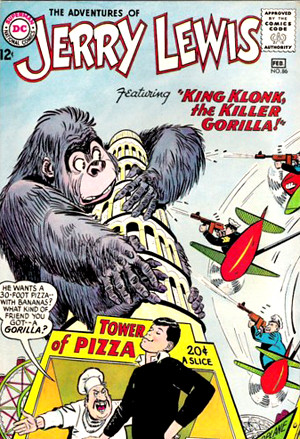If you are still wondering why content is king on the Internet, even beyond blogs, consider that American Online (AOL) continues to lose ground after reducing its reliance on subscriptions and shifting to an ad revenue model despite having what once was the largest place to connect on the Internet.
So what happened? As made all too apparent by Miguel Helt in The New York Times on Monday, ad revenue alone cannot replace the splendor AOL once enjoyed as the darling of online subscription services. The Internet has changed and AOL changed too late.
What is not clear in the article is the true culprit behind the AOL slip. Its slow transition from subscription to ad revenue hastened the pace of member defection. Basically, its members left because it didn’t make sense to pay for advertising-infused services that they could get elsewhere. Then, as its members left, AOL had fewer numbers to pull down ad deals.
It has been a long time since I visited AOL (not counting yesterday), but I did two years ago. What I found made me realize my decision to leave was a good one. Chat rooms, once a core service offered by AOL, were overwhelmed with little lines of advertising and bothersome bots, leaving people to wonder if anyone was real. (Probably not. Real people were using Instant Messenger.) Hardly something worth using let alone paying for.
And that brings us to today. According to the article, the newest idea to save AOL is to re-engineer the site so its customers can choose various channels and services they like and then include them in their blogs, personalized home pages, or favorite social networking sites. (In other words, they still do not get it.)
“We are not trying to build yesterday’s portal,” said Ron Grant, president of AOL told The New York Times. “We are trying to build a network of sites that users can combine or do whatever they are most comfortable with.”
Where is the added value? When you consider our shiny new object syndrome that tends to sweep the Web every few months (or is it weeks?), our apparent desire to customize as opposed to accept package deals, our disdain for intrusive advertising (which AOL has built right into its new page layout), and our thirst for fresh content, AOL really is only offering yesterday’s portal today.
Look, the Internet is not hard to decipher. There are three distinct offerings that attract customers to any platform and portal (or even blog): exclusive content, exclusive products, or exclusive services. Google: exclusive services. eBay: exclusive products. The New York Times: exclusive content. Sure, there are other examples that can be plugged in and other ways to make an impact. For example, Southwest Airlines attributes $150 million in ticket sales generated by a widget.
Once you have exclusive content, products, or services, a growing number of members, subscribers, and consumers will follow. In time, this following will be more likely to pay for a product, service, or submit to some mysterious amount of advertising (assuming you have the right audience). Even AOL, once upon a time, had all three ingredients, which justified the subscription fee. For many of us, at least for a short while, it was also the only connection game in town.
But as the world grew up around the company, AOL's once exclusive services began to erode, its content became more generic, and its products were improved upon by others. Worse, its branding all but imploded under the weight of aggressive control and generic content, increasingly sophisticated customers, poor “user” service and cancellation policies, and an inability to leapfrog the competition.
Ho hum, if AOL wants to remain relevant today, it seems to me that it might forget trying to build a better mousetrap to be all things to all people. A better strategy would be to focus on the next bright shiny object. And, given the amount of space it has available, who knows? Maybe this shiny object could be solving the broadband limitation ratio of “many to 1,” which is the last known hurdle in true convergence between traditional media and the Internet.

So what happened? As made all too apparent by Miguel Helt in The New York Times on Monday, ad revenue alone cannot replace the splendor AOL once enjoyed as the darling of online subscription services. The Internet has changed and AOL changed too late.
What is not clear in the article is the true culprit behind the AOL slip. Its slow transition from subscription to ad revenue hastened the pace of member defection. Basically, its members left because it didn’t make sense to pay for advertising-infused services that they could get elsewhere. Then, as its members left, AOL had fewer numbers to pull down ad deals.
It has been a long time since I visited AOL (not counting yesterday), but I did two years ago. What I found made me realize my decision to leave was a good one. Chat rooms, once a core service offered by AOL, were overwhelmed with little lines of advertising and bothersome bots, leaving people to wonder if anyone was real. (Probably not. Real people were using Instant Messenger.) Hardly something worth using let alone paying for.
And that brings us to today. According to the article, the newest idea to save AOL is to re-engineer the site so its customers can choose various channels and services they like and then include them in their blogs, personalized home pages, or favorite social networking sites. (In other words, they still do not get it.)
“We are not trying to build yesterday’s portal,” said Ron Grant, president of AOL told The New York Times. “We are trying to build a network of sites that users can combine or do whatever they are most comfortable with.”
Where is the added value? When you consider our shiny new object syndrome that tends to sweep the Web every few months (or is it weeks?), our apparent desire to customize as opposed to accept package deals, our disdain for intrusive advertising (which AOL has built right into its new page layout), and our thirst for fresh content, AOL really is only offering yesterday’s portal today.
Look, the Internet is not hard to decipher. There are three distinct offerings that attract customers to any platform and portal (or even blog): exclusive content, exclusive products, or exclusive services. Google: exclusive services. eBay: exclusive products. The New York Times: exclusive content. Sure, there are other examples that can be plugged in and other ways to make an impact. For example, Southwest Airlines attributes $150 million in ticket sales generated by a widget.
Once you have exclusive content, products, or services, a growing number of members, subscribers, and consumers will follow. In time, this following will be more likely to pay for a product, service, or submit to some mysterious amount of advertising (assuming you have the right audience). Even AOL, once upon a time, had all three ingredients, which justified the subscription fee. For many of us, at least for a short while, it was also the only connection game in town.
But as the world grew up around the company, AOL's once exclusive services began to erode, its content became more generic, and its products were improved upon by others. Worse, its branding all but imploded under the weight of aggressive control and generic content, increasingly sophisticated customers, poor “user” service and cancellation policies, and an inability to leapfrog the competition.
Ho hum, if AOL wants to remain relevant today, it seems to me that it might forget trying to build a better mousetrap to be all things to all people. A better strategy would be to focus on the next bright shiny object. And, given the amount of space it has available, who knows? Maybe this shiny object could be solving the broadband limitation ratio of “many to 1,” which is the last known hurdle in true convergence between traditional media and the Internet.





















